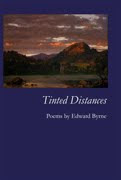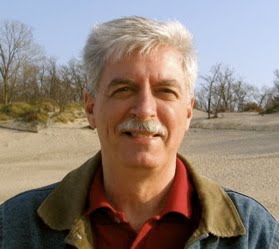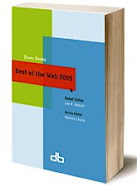 For almost thirty years Valparaiso University’s Department of English has sponsored a visiting writers program that has brought nearly 100 writers of poetry, fiction, nonfiction, and drama to campus for public readings and class conversations or individual meetings with students interested in creative writing. The program’s title, Wordfest, existed long before the fine 1997 Michael Chabon novel, Wonder Boys, and the subsequent 2000 movie version starring Michael Douglas and Tobey Maguire that included a visiting writers series with the same title.
For almost thirty years Valparaiso University’s Department of English has sponsored a visiting writers program that has brought nearly 100 writers of poetry, fiction, nonfiction, and drama to campus for public readings and class conversations or individual meetings with students interested in creative writing. The program’s title, Wordfest, existed long before the fine 1997 Michael Chabon novel, Wonder Boys, and the subsequent 2000 movie version starring Michael Douglas and Tobey Maguire that included a visiting writers series with the same title.Although the program began before I arrived at Valparaiso University, marvelously directed in its initial stage by Kathleen Mullen, I have been fortunate to be involved in its planning the past twenty-three years, most of that time as chair of the committee inviting writers each year. I now continue as co-chair by assisting the energetic and enthusiastic Allison Schuette-Hoffman. Among the writers who have visited campus the last couple of decades are a winner of the Nobel Prize for Literature, a Poet Laureate of the United States, and various authors who have been recipients of the Pulitzer Prize, the National Book Award, the National Book Critics Circle Award, and other distinguished honors for their writing. Examining the roster of visiting poets alone, one would find Agha Shahid Ali, John Balaban, Sharon Bryan, Amy Clampitt, Patricia Clark, Reginald Gibbons, Nikki Giovanni, Laurence Lieberman, Heather McHugh, Paul Muldoon, Sherod Santos, Dave Smith, Mark Strand, Richard Tillinghast, Daniel Tobin, Catherine Tufariello, Derek Walcott, Bruce Weigl, Charles Wright, and many more.
I have always believed the opportunities for students, especially those in poetry writing courses, to hear poets read their work and for students to engage in conversations with these poets have provided a benefit difficult to measure. An apple remains the clichéd gift brought to a teacher’s classroom; however, considering the numerous writers who have been kind enough to visit and speak with my creative writing students about the process of composition or the difficulties and rewards of publication, I feel I have been blessed with many gifts, a full bowl of golden apples over the years.
Often, one only encounters poems on the page, usually brief samples in anthologies where any biographical information seems merely to contain factual items that might just as easily be listed in a resumé. These details lack most of the personality and emotional attachment a poet brings to his or her reading or reveals in casual conversations. Rather than read the poets on the anthology pages simply as generic literary figures distant from the students, names in a table of contents or index without a great deal of individual identity, students are able now to associate flesh and blood human beings and their distinctive voices with the particularly effective language readers detect in the works they face.
Indeed, frequently my students have had their understanding of the literature under consideration, as well as its inception, enhanced by their meetings with the authors who created the work. Students suddenly appreciate more fully the physical and emotional investment made by authors in order to achieve a complete rendition of experiences and observations in their writings. At the same time, when poets or other authors share their early experiments with writing and the explorations, or even various mistakes, they may have made during their apprentice years—as well as their initial lack of confidence that readers would understand their efforts—my creative writing students appear to identify with these thoughts and tend to attain a greater appreciation of the need to forge ahead even as they are struggling with those words they place on their pages, or as they harbor doubts about the responses their writings might evoke in readers.
When a writer visits with a class, the students have a chance to ask questions directly to the author and find out for themselves the inspirations, intentions, and incidents of revision during the process of composition that led to the work’s final form. Instead of relying upon the interpretations or inferences offered by critics’ commentaries, the students can come to their own conclusions based upon personal interrogation and evaluation of the author’s shared words. As well, the students discover or define their singular concerns about writing by the content and tone of the questions they raise, and they can be helped immensely by an author’s words of advice or encouragement.
This past week we opened the 2007-2008 visiting writers series with a lecture, a reading, and in-class conversations by Julia Kasdorf, a poet and nonfiction writer who also teaches creative writing at Penn State University. In her lecture titled “Making Martyrs: Thoughts on the Radical Reformation, Memory, and Identity after 9/11,” Kasdorf—author of a collection of essays, The Body and the Book: Writing from a Mennonite Life, and a biography, Fixing Traditions: Joseph W. Yoder, Amish American—referenced her upbringing among Amish and Mennonite communities as she spoke about the history of martyrdom in Anabaptist religions. Her engaging comments moved forward through centuries of religious thought about martyrdom to a comparison and contrast with the controversial contemporary depiction of martyrs by some in Islamic communities post-9/11.
Kasdorf’s personal background, as well as the unique challenges or difficulties it presented to her as a writer, added another fascinating facet to her classroom discussions with students as she spoke not only about the composition of individual poems and the organization of book-length collections, but also related the sharp responses her self-revelatory poems received in her hometown community. In doing so, Kasdorf’s observations confronted an issue of reader response students sometimes do not realize, particularly how a poem’s frank language might affect those close to the poet, yet how words almost certainly must remain honest and exact for greatest impact.
In her public poetry reading held in the magnificent surroundings of the university art museum’s main gallery, Kasdorf presented poems from each of her two collections published by the University of Pittsburgh Press, Sleeping Preacher and Eve’s Striptease, as well as newer poems from a working manuscript she hopes to complete in the upcoming year. Her performance involved important commentary about the composition process or allusions included in each of the works she read. As one might expect, the poet’s personality, displaying a sense of self-effacement and some very good humor, more fully developed a compelling portrait of the writer that contributed to the listeners’ appreciation for the poetry they heard.
For a little taste of Julia Kasdorf’s reading and to find out a bit more about her, I suggest beginning at a Penn State University web page that includes a brief interview and an audio clip of Kasdorf reading “Bat Boy, Break a Leg,” one of the poems she offered in her presentation at Valparaiso this past week.























No comments:
Post a Comment